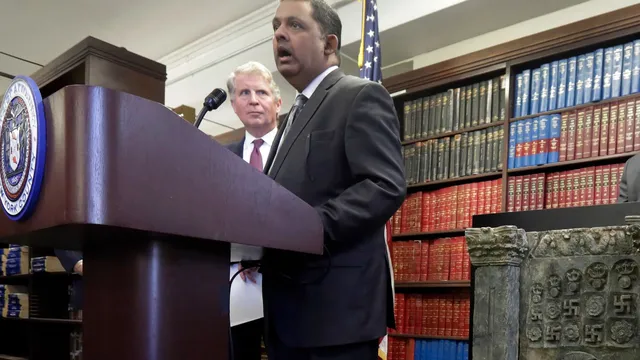
Pakistan test-fires missile amid escalating India tensions
2025-05-05 04:14- On April 30, 2025, Pakistan test-fired a ballistic missile amid escalating tensions with India over a deadly attack in Kashmir.
- The missile test aimed to ensure operational readiness for troops following accusations of potential Indian military action.
- The situation reflects the ongoing and complex territorial dispute over Kashmir, with international calls for resolution.
Express your sentiment!
Insights
On April 30, 2025, amid escalating tensions between India and Pakistan, the Pakistani military conducted a test-firing of its Abdali Weapon System, a surface-to-surface ballistic missile with a range of 450 kilometers. The test was conducted to ensure the operational readiness of troops and to validate critical technical parameters, including the missile’s navigation system and maneuverability. This missile firing occurred against the backdrop of a deadly attack on tourists in Pahalgam, Kashmir, on April 22, 2025, resulting in the deaths of 26 individuals, which India attributed to Pakistan. In the following days, India accused Pakistan of cross-border fire, escalating military confrontations as both nations grappled with a longstanding territorial dispute over Kashmir, a region claimed in full by both countries but controlled in parts since the 1947 partition. The tensions prompted Pakistani officials to communicate with the United States, seeking help from President Donald Trump to negotiate a resolution to the Kashmir issue, described by the Pakistani Ambassador as a potential 'nuclear flashpoint.' This situation highlights the fragile nature of peace in South Asia and the preparation of both nations for a possible military confrontation, a concern echoed by international observers, including the United Nations, which warned of the dire consequences of escalating conflicts.
Contexts
The history of India-Pakistan tensions in Kashmir is a complex narrative that has evolved significantly since the partition of British India in 1947. The region of Jammu and Kashmir was a princely state at the time of partition, and the Indian Independence Act allowed princely states to choose between joining India or Pakistan. Maharaja Hari Singh, the ruler of Kashmir, initially opted for independence, but in October 1947, faced with an invasion by tribal militias from Pakistan, he requested military assistance from India. Under these circumstances, he signed the Instrument of Accession to India, which triggered the first Indo-Pakistani War. This conflict resulted in the establishment of a Line of Control, effectively dividing the territory into two parts—one administered by India and the other by Pakistan, with both nations claiming the entirety of Jammu and Kashmir as their own territory. The tensions further escalated in the following decades, leading to two more significant wars between the two countries in 1965 and 1971. The 1965 War resulted in a stalemate and was followed by the Tashkent Agreement, but it did little to resolve the core issue of Kashmir. The focus shifted briefly during the 1971 War, which led to the creation of Bangladesh but also reinforced the unresolved status of Jammu and Kashmir. Over the years, various diplomatic initiatives attempted to resolve the conflict, including the Simla Agreement in 1972, which called for bilateral discussions but ultimately failed to achieve lasting peace or address the desires of the Kashmiri people. In the late 1980s, insurgency erupted in Indian-administered Kashmir, fueled by political discontent and human rights abuses. The rise of militancy led to brutal crackdowns by the Indian security forces, resulting in significant civilian casualties and displacement. This phase of the conflict has been characterized by severe repression, a heavy military presence, and a continuous cycle of violence, making it one of the longest-running unresolved conflicts in the world. The situation has been further complicated by external actors, including Pakistan's support for militant groups operating in the region, which India accuses of cross-border terrorism, prompting a series of confrontations and skirmishes along the Line of Control. The Kashmir issue remains a flashpoint in India-Pakistan relations and is deeply intertwined with national identities and geopolitical strategies. Both countries maintain that the resolution of the Kashmir dispute is pivotal for regional stability, yet mutual distrust and conflicting narratives exacerbate the situation. Over the years, various dialogues have taken place, but a peaceful resolution remains elusive. The Kashmir Valley continues to experience unrest, and the Indian government's revocation of Article 370 in 2019, which provided special status to Jammu and Kashmir, has further heightened tensions. As of 2025, the implications of the Kashmir conflict extend beyond the borders of India and Pakistan, as it poses risks to regional security, affects bilateral relations, and impacts the lives of millions of people caught in the crossfire.